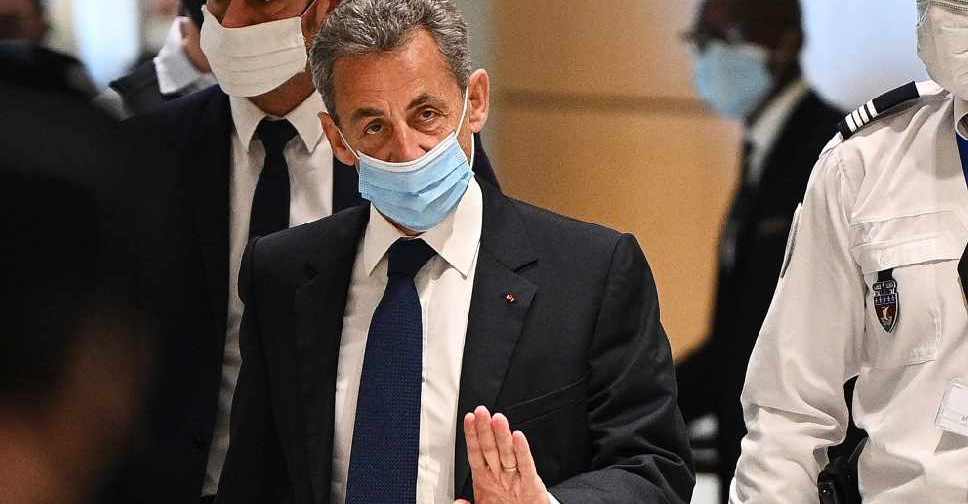
Former French president Nicolas Sarkozy goes on trial on Wednesday accused of financing his failed 2012 re-election campaign illegally, less than three weeks after being convicted of corruption.
Prosecutors allege that Sarkozy's party, then known as the UMP, splurged nearly double the 22.5 million euros ($27 million) permitted under electoral law on extravagant campaign rallies, and then used a friendly public relations agency to hide the cost.
In their indictment, the prosecutors acknowledge that their investigation had failed to prove Sarkozy either organised or was involved in the scheme, but argue that he benefited from it and must have been aware of it.
"The election candidate and his inner circle opted to focus the campaign on spectacular and expensive rallies and to entrust the organisation to specialist agencies," the indictment reads.
Sarkozy, 66, has consistently denied wrongdoing and said he was not aware of a fake billing process. If found guilty, he could be jailed for up to a year and fined up to 3,750 euros.
The trial casts another ignominious pall over a political career that saw Sarkozy bestride the national and global stage for five years, but dramatically fall from grace in a courtroom this month.
Jerome Lavrilleux, Sarkozy's deputy campaign chief in 2012 and one of 13 co-accused, has publicly acknowledged that he oversaw the rerouting of funds paid to the PR agency Bygmalion to camouflage the cost of the campaign events. He has said he acted on his own initiative.
Two co-founders of Bygmalion are also among the accused. One of them, Guy Alves, has publicly acknowledged the fake billing. In 2014, a lawyer for Bygmalion said the company had acted under political pressure.
Lavrilleux has requested the trial be postponed after a member of his defence team fell sick with COVID-19, and the judges will have to decide on Wednesday whether to adjourn for several weeks.
Sarkozy was sentenced on March 1 to three years in prison, with two of them suspended, for attempting to bribe a judge to give him inside information on another investigation, into his 2007 campaign finances. He has lodged an appeal.

 Iranian President Raisi killed in helicopter accident, state media says
Iranian President Raisi killed in helicopter accident, state media says
 ICC prosecutor seeks arrest warrants for Israeli, Hamas leaders
ICC prosecutor seeks arrest warrants for Israeli, Hamas leaders
 Assange given permission to appeal against US extradition
Assange given permission to appeal against US extradition
 Israel intends to broaden Rafah sweep, Defence Minister tells US
Israel intends to broaden Rafah sweep, Defence Minister tells US
 New Taiwanese president calls on China to stop threats
New Taiwanese president calls on China to stop threats




